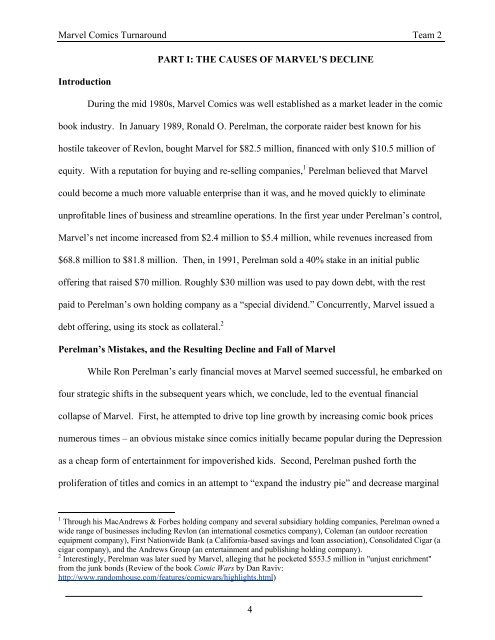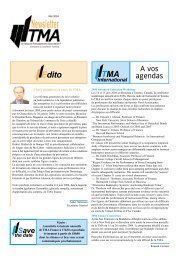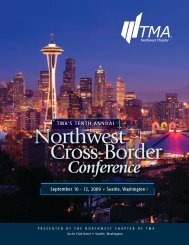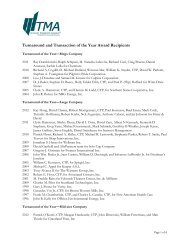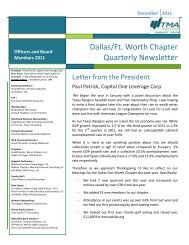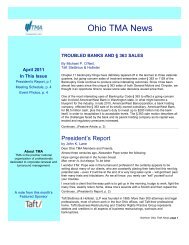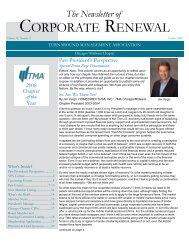marvel comics turnaround - Turnaround Management Association
marvel comics turnaround - Turnaround Management Association
marvel comics turnaround - Turnaround Management Association
You also want an ePaper? Increase the reach of your titles
YUMPU automatically turns print PDFs into web optimized ePapers that Google loves.
Marvel Comics <strong>Turnaround</strong> Team 2<br />
Introduction<br />
PART I: THE CAUSES OF MARVEL’S DECLINE<br />
During the mid 1980s, Marvel Comics was well established as a market leader in the comic<br />
book industry. In January 1989, Ronald O. Perelman, the corporate raider best known for his<br />
hostile takeover of Revlon, bought Marvel for $82.5 million, financed with only $10.5 million of<br />
equity. With a reputation for buying and re-selling companies, 1 Perelman believed that Marvel<br />
could become a much more valuable enterprise than it was, and he moved quickly to eliminate<br />
unprofitable lines of business and streamline operations. In the first year under Perelman’s control,<br />
Marvel’s net income increased from $2.4 million to $5.4 million, while revenues increased from<br />
$68.8 million to $81.8 million. Then, in 1991, Perelman sold a 40% stake in an initial public<br />
offering that raised $70 million. Roughly $30 million was used to pay down debt, with the rest<br />
paid to Perelman’s own holding company as a “special dividend.” Concurrently, Marvel issued a<br />
debt offering, using its stock as collateral. 2<br />
Perelman’s Mistakes, and the Resulting Decline and Fall of Marvel<br />
While Ron Perelman’s early financial moves at Marvel seemed successful, he embarked on<br />
four strategic shifts in the subsequent years which, we conclude, led to the eventual financial<br />
collapse of Marvel. First, he attempted to drive top line growth by increasing comic book prices<br />
numerous times – an obvious mistake since <strong>comics</strong> initially became popular during the Depression<br />
as a cheap form of entertainment for impoverished kids. Second, Perelman pushed forth the<br />
proliferation of titles and <strong>comics</strong> in an attempt to “expand the industry pie” and decrease marginal<br />
1 Through his MacAndrews & Forbes holding company and several subsidiary holding companies, Perelman owned a<br />
wide range of businesses including Revlon (an international cosmetics company), Coleman (an outdoor recreation<br />
equipment company), First Nationwide Bank (a California-based savings and loan association), Consolidated Cigar (a<br />
cigar company), and the Andrews Group (an entertainment and publishing holding company).<br />
2 Interestingly, Perelman was later sued by Marvel, alleging that he pocketed $553.5 million in "unjust enrichment"<br />
from the junk bonds (Review of the book Comic Wars by Dan Raviv:<br />
http://www.randomhouse.com/features/comicwars/highlights.html)<br />
4


